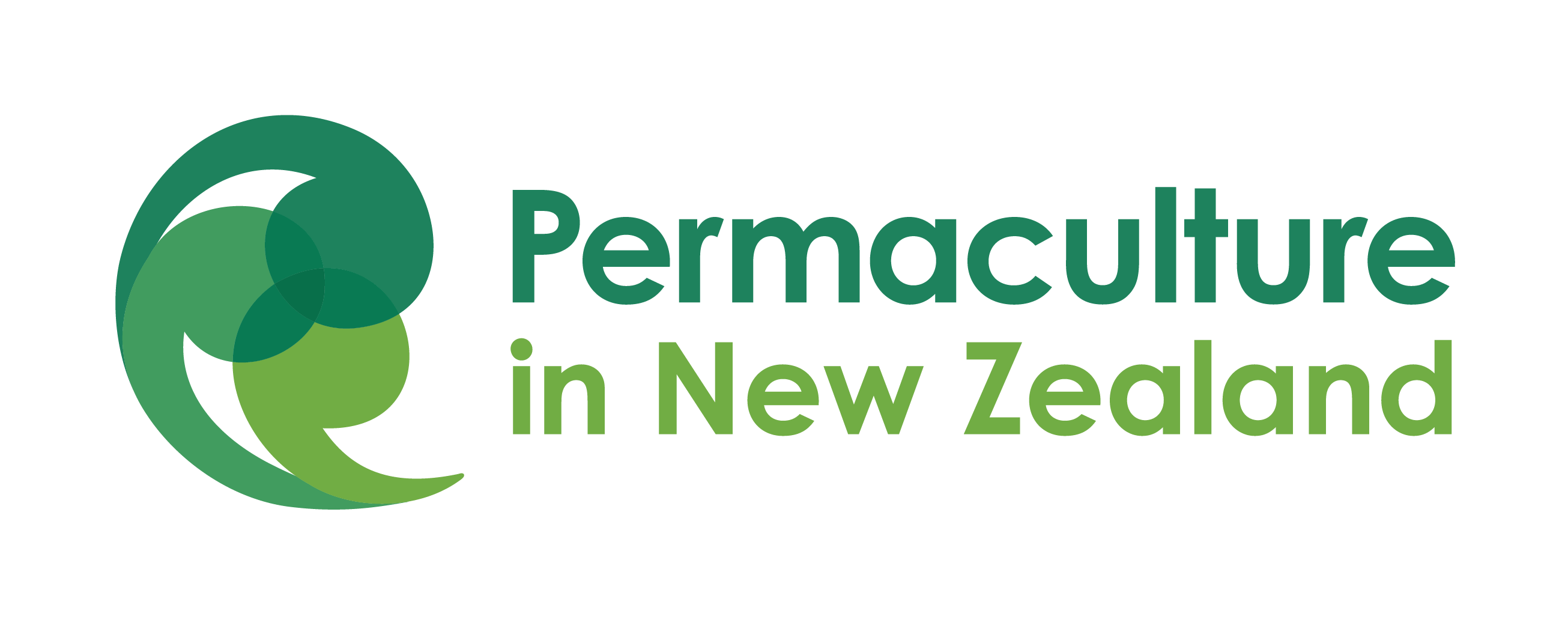Kia ora koutou Permaculture Whanau,
On Sunday we held our AGM and I would like to thank everyone who participated via the online voting forms and the Zoom meeting.
If you are a paid member you will already have received and email with the results, but for those who are not members you can read the results below and hear a little bit about our council members.
The PiNZ council are elected and volunteer their time to steer the organisation to achieve our mission to “make permaculture accessible to all residents of Aotearoa by supporting the development of learning opportunities and education pathways, expanding the permaculture community and networking opportunities, and promoting the development and practice of permaculture in Aotearoa/New Zealand. “
But we value feedback as diverse perspectives and input contributes to us making progress towards our aim. Our members have already shared a lot of feedback with us, and we hope they continue to do so, but even if you are not a member we want to hear your feedback, so feel free to share your thoughts, feedback, and ideas by emailing info@permaculture.org.nz
As we head towards the Solstice and Christmas I would like to wish everyone a productive growing season, a bounty of summer produce, an abundance of opportunities to connect, strengthen and build relationships, and a Meri Kirihimete.
Nga mihi nui,
Fiona Moorhouse
Acting Chairperson
Permaculture in New Zealand
| AGM Results Nominations For Council. This year two of our PiNZ Council members Nick and Belinda are moving on to focus on other things and Rory is stepping down from an official role on council due to an upcoming international relocation but will remain involved in an advisory role to facilitate upskilling in website management. Merve is heading into her second year on council so did not need to stand and Fiona is heading into her third year and stood for re-election alongside nominees Lucretia Charan, Alex Hildebrandt, Amanda Warren, Alaina George.Everyone standing has been elected which is fantastic news as we have a great diversity of skill in the group, fresh ideas and positive energy. Meet our New PiNZ Council 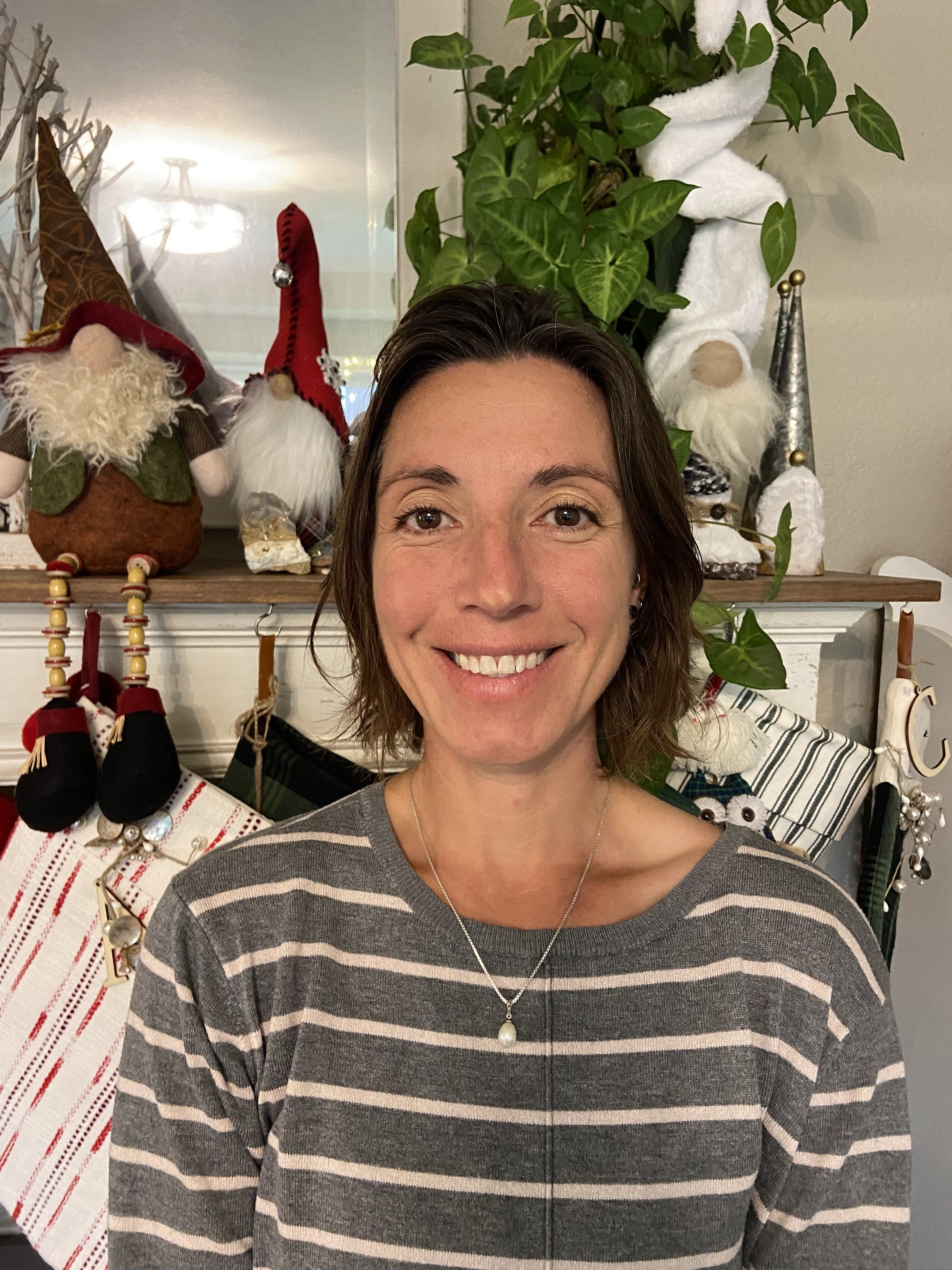 Alaina George My name is Alaina George. I’ve lived here in NZ since 2008 and have a young family with a home in Leigh. I’ve just finished my PDC and I’d like to continue my journey in Permaculture. By joining the committee I can contribute from my varied background while being part of the ever changing permaculture scene in NZ. I’d love to be considered for a role of a committee member to begin and perhaps grow my role within the committee as time rolls on. 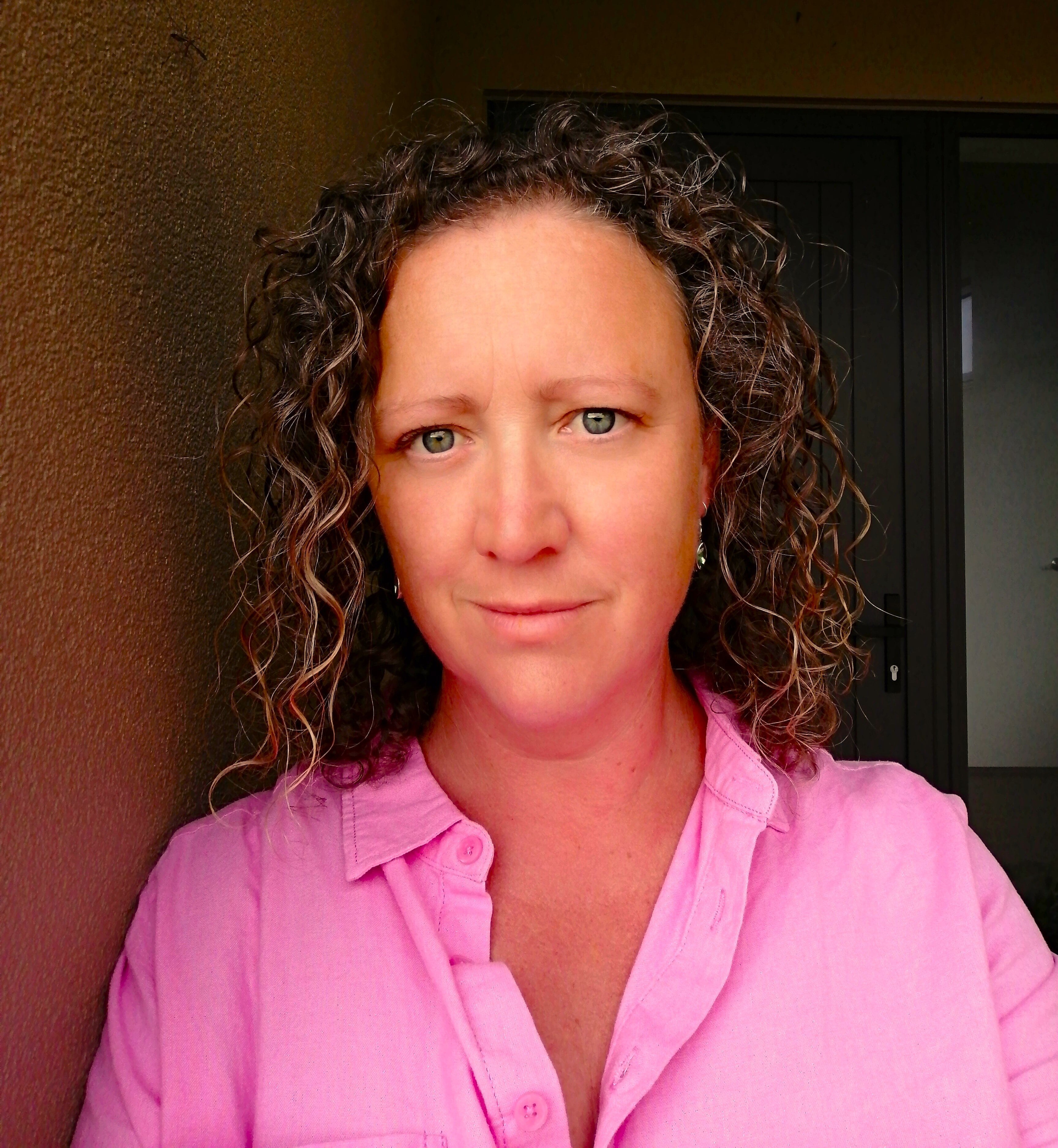 Fiona Moorhouse I have now been on Council for 2 years, the first year as a general council member and this past year in the role of Chair, and even before being elected to council I was on the organising team for the Whanganui National Hui that could not proceed due to Covid. In addition to my role on council I continue to manage the Marton Community Garden, work with international students, run workshops, develop our little farm, and I am getting ever closer to completing my Masters in Psychology. I believe 100% that expanding the reach of Permaculture within Aotearoa New Zealand is vital as it will result in greater connection to others and the environment as well as build our resilience as a nation. My passion is people and seeing the empowerment that comes from I have chosen to stand again to ensure we maintain the momentum accrued over the past 12 months and I can provide some continuity as 3 of our 5 current council members leave to pursue other personal endeavours. 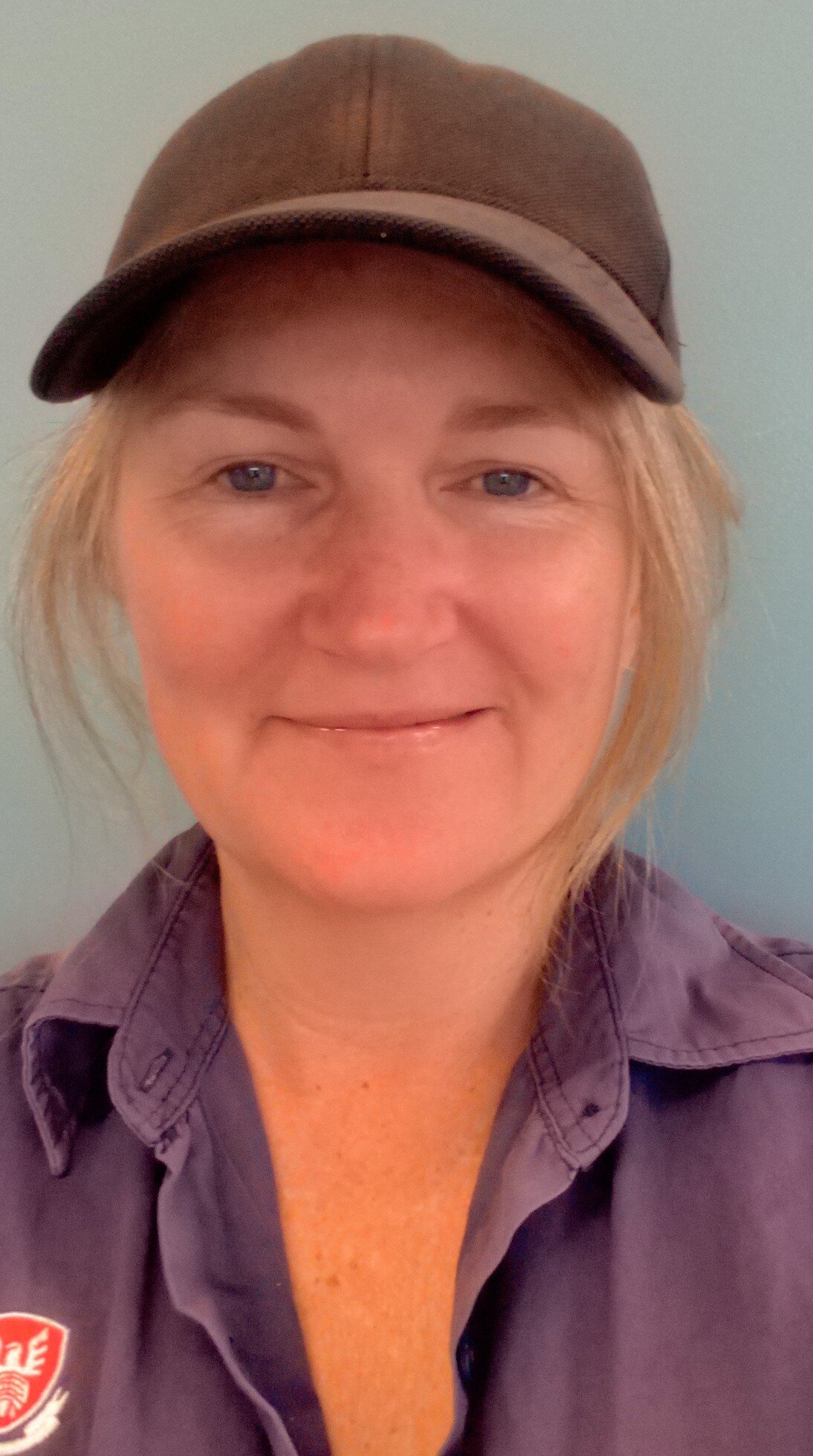 Lucretia Charan I have recently finished a PDC design course with Trish and Guenther in Matakana. I’m passionate about permaculture, organic gardening, design and education. I have been a head gardener for nearly 20 years converting properties to organics as I go. I have managed and trained teams in horticulture and primary industries. I also am a tutor teaching Sustainable Primary Production Level 4 which teaches adults to work with permaculture and biodynamics in this industry. I feel I can bring a lot of experience to the table. 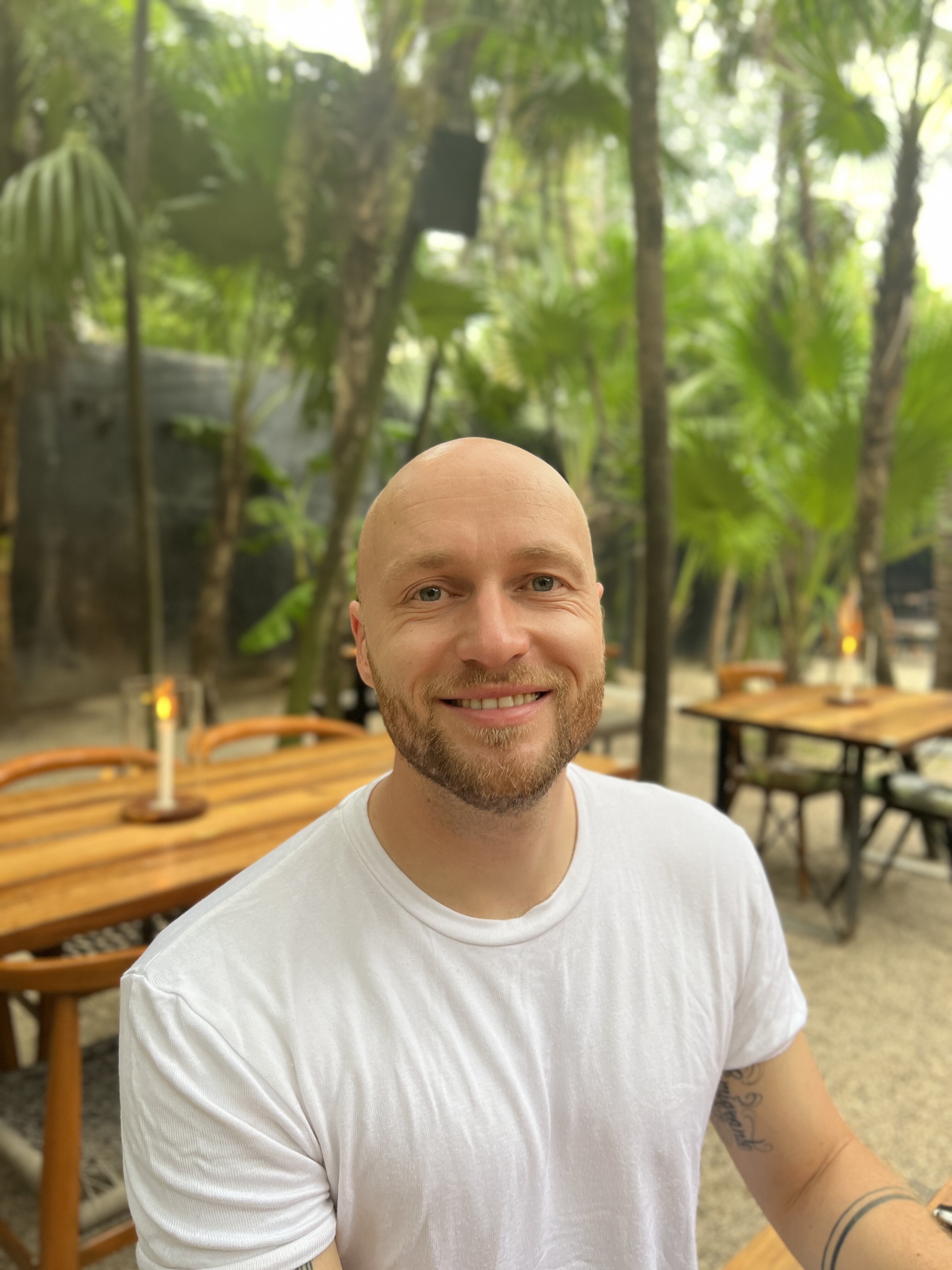 Alex Hildebrandt I’m Alex Hildebrandt, a 38 year old naturally inquisitive permadventurer who has found his way into his permaculture journey by way of a masters of sustainable product design, 12+ years in the corporate world as business development manager for multiple global companies in 5 countries, and a much-needed redundancy wake up call that lead me to restart my design career as permaculture designer. I would love to be part of the PiNZ council because I feel that permaculture in NZ can reshape and reignite our thinking of how we build our communities, feed our souls and our soils and how we can reintegrate our communities in more resilient ecosystems for our collective future. I believe that my corporate background in building relationships, my global profile and connections, and my passion to build could really be of good use for the council. 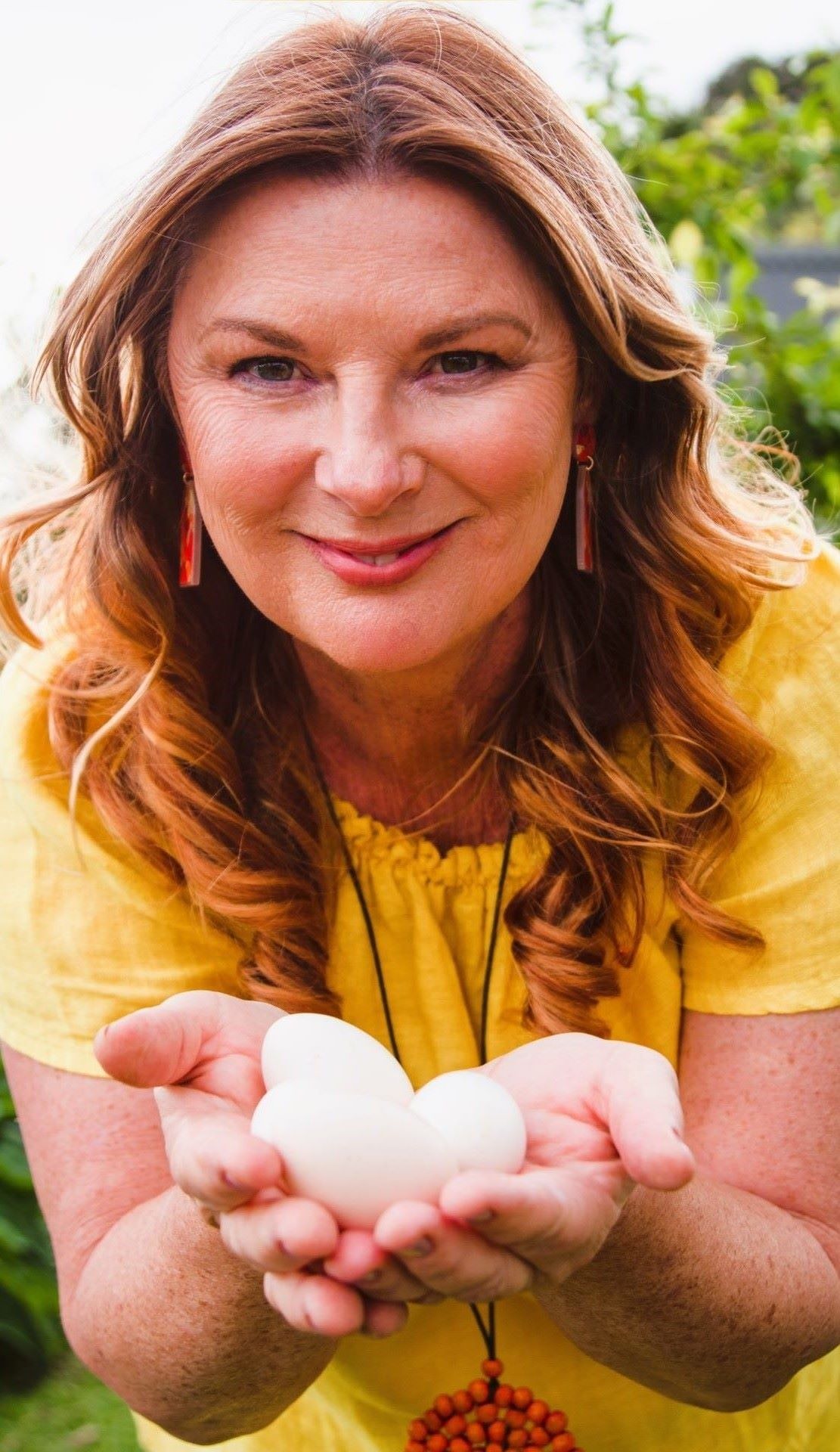 Amanda Warren Hi fellow Permies, I love Permaculture; since doing my PDC with Guenther and Trish in 2021, I am positively addicted to it. I am a designer and so Permaculture has become my profession too. I began www.GiftTheGarden.org.nz as a movement to help people in urban spaces gift their gardens to nature, whilst growing food for themselves using least work (as nature does it for us). The gardens are designed and then delivered Permablitz style. I run workshops from my garden www.gardenforwellbeing.org to introduce Permaculture in a gentle way to urban people with their own small spaces. I have recently begun a mentoring program for those who wish to do the same, designing & delivering more Gift-The-Garden projects. This is a free service for those who have or are studying their PDC. Gift-The-Garden is also the subject of my Permaculture Diploma which I am currently writing up having delivered over 15 gardens in the last 2 years. Finally, a group of local, talented people and I started www.sustainablegardentrail.org.nz festival, launched in 2023 and is running again next year on February 24/25 and features many Gift-The-Gardens along with others. I was nominated last year on PiNZ, but due to personal circumstances, I needed to delay my service, but I am now ready and keen to serve. I have two areas of particular interest; Professional Permaculture and helping those who are practicing to thrive and network across Aotearoa and secondly, links with our international brothers and sisters. I regularly travel to Australia and Europe to see what is new there that I can bring back into my designs and there are some strong very Permaculture practices there. Proposal: Change the Membership Pricing Structure effective July 2024 The below proposal was passed with a vote of 82% Proposal to change to: $10 New PDC Graduate of a PiNZ Approved PDC $25 Unwaged/Student $50 Waged $100 Affiliated teachers and Permaculture designers/professionals 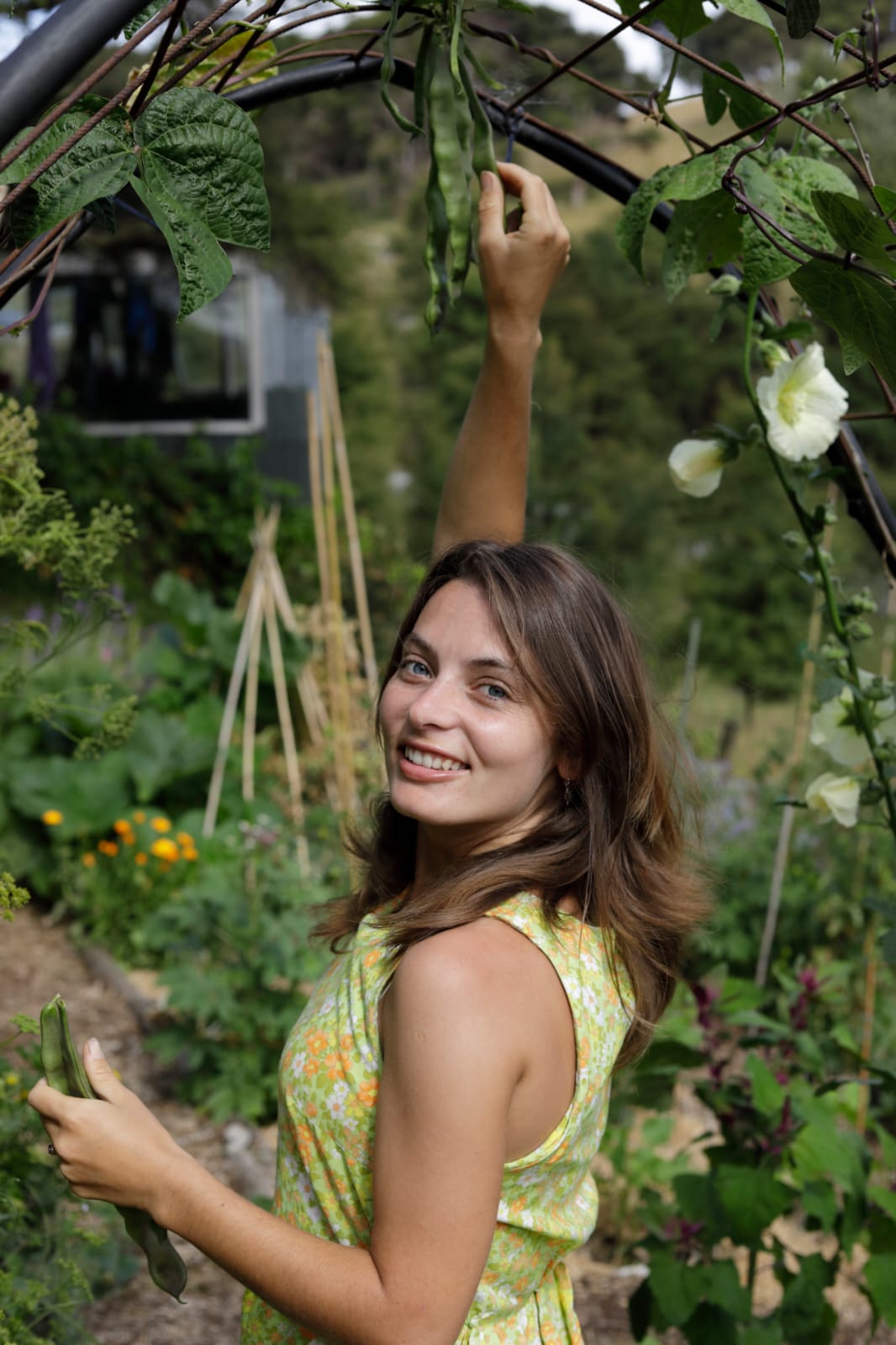 BEHIND THE NEWSLETTERS Over the past 7 months, I have been sharing permaculture principles & field examples with you, as an attempt to share more of the tools that we can use and apply to our lives for a regenerative lifestyle. Since we had our AGM and election for council members just last weekend, it seems timely I reintroduce myself as well. My name is Merve. I was born in an eco village in the mountains of Black Sea, Turkey. BEHIND THE NEWSLETTERS I spent most of my childhood interacting with nature, either foraging in the bush or building a dam on the river; nature was where I spent most of my time. Later, my family migrated to a big city in search of better life quality and education for myself and my siblings. I studied Molecular Biology and Genetics and spent lots of different labs with focuses on immunology, cell biology and chemistry. Funny enough back then, plant biology was only field I stayed away thinking it is a boring one. After spending years in research projects where I felt there was no real life applications of my scientific work, I was finally introduced to Permaculture and Hua Parakore Principles where I could connect my science background to the wisdom of the land in an attempt to create a harmonious life for all. Now I work as a permaculture designer and educator as well as running Permaculture Farm/Retreat called Hakea Retreat in Pakoka Scenic Reserve, rural Raglan. I have enjoyed bringing you all the principles as a way to inspire, adapt sustainable practices, explore nature spirituality and understand nature’s building blocks. Nature has been growing and providing for thousand of years, proving that it is the best teacher for us learn from. Arohanui, Merve Yeşilkır Principle 8 : INTEGRATE RATHER THAN SEGREGATE 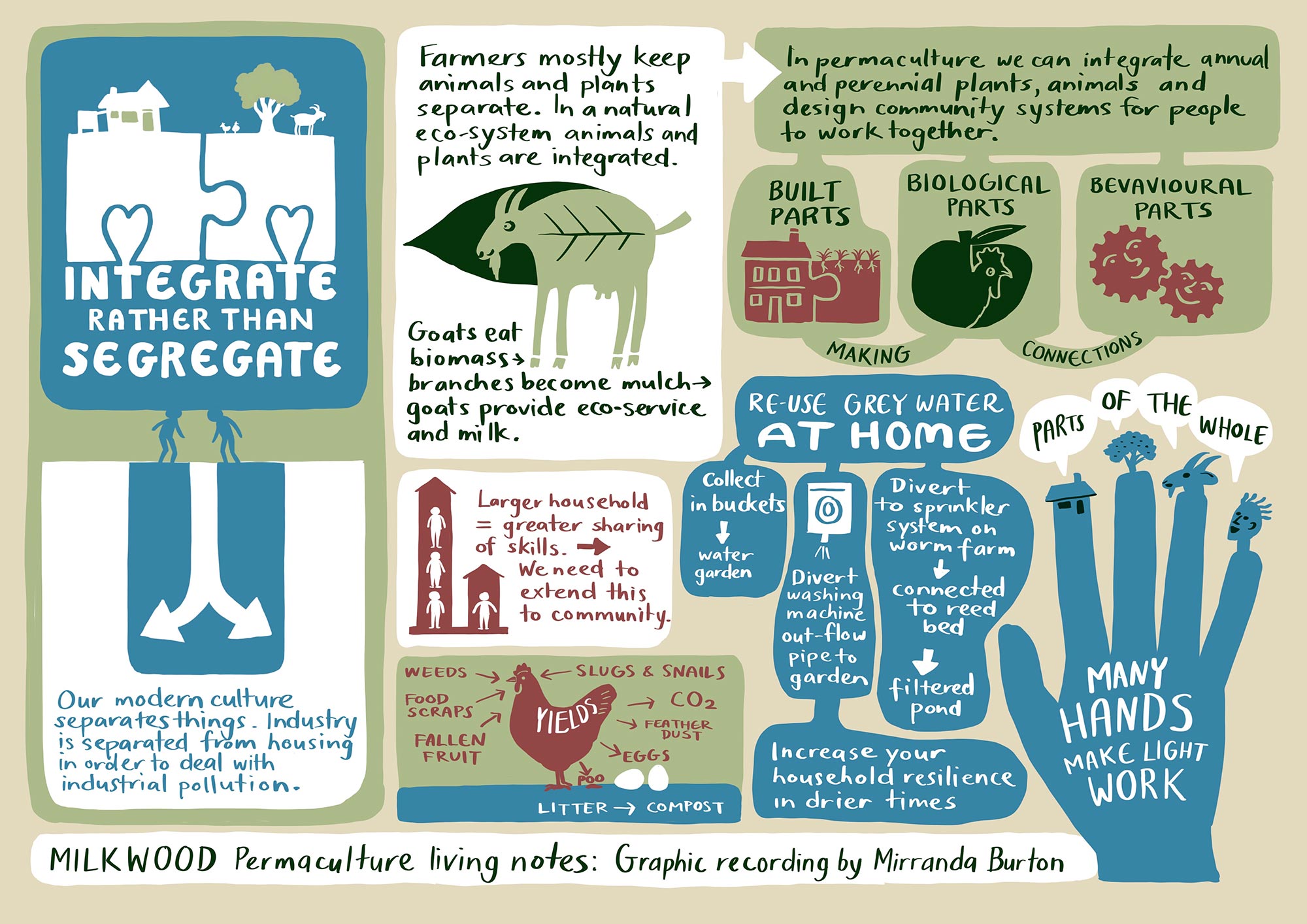 Integrate rather than segregate This month we continue with Principle 8, Integrate rather than segregate which remind us to create relationships between each element and every element of a system, whether that’s plants, animals or us as humans. As Bill Mollison puts it: “ the purpose of a functional and self regulating design is to place elements in such a way that each serves the needs and accepts the products of other elements.” This way we create a closed loop system, neither bringing extras to keep the system going nor producing waste. One of the most important insights from ecology is that the relationships between things are as important as the things themselves. A healthy vibrant ecosystem is a mass of connections and relationships. That’s what we are trying to create with a permaculture system. Permaculture seeks to integrate elements together so that the needs of one are supplied by another. This is well described by three concepts from Permaculture: 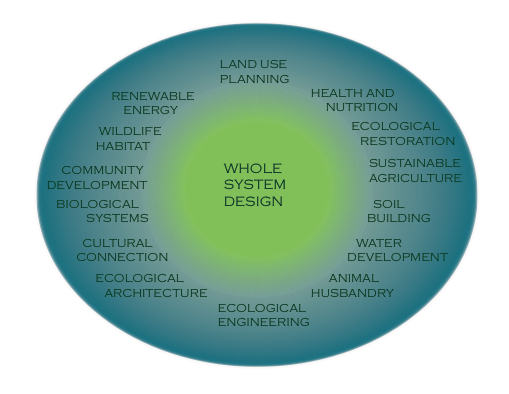 Each important function is supported by many elements For example, food for a household might be provided by a diversity of main crops, wild food, salad and vegetable beds, orchards and soft fruit, agreements with other producers, small and large livestock. If any one source fails, others will provide. This increases the systems ‘resilience’ and makes failure or disaster less likely. 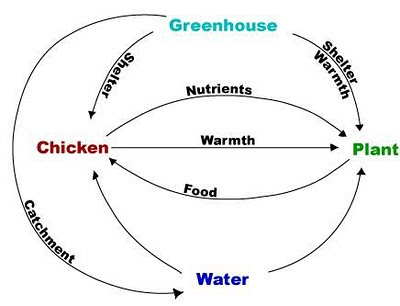 Each element provides many functions Many conventional and industrial systems tend to look at ‘elements’ (e.g. a chicken) as producing only one yield (eggs or meat). This single yield is then promoted and extended often at a cost to the environment and the element itself. In a permaculture system we are trying to utlise all the different functions and yields of an element, e.g. a chicken can provide pest control, tillage, meat, feathers, eggs, heat etc., to increase the overall yields and create a more integrated system. Relative location In order for there to be good connections between different parts of the system, it is important to place them so that they can do this. An obvious example is that a rainwater collection barrel is generally best placed next to the downpipe from a house, or chickens next to annual beds that need occassional tilling and pest control, or herbs next to the back door for easy picking for your next cup of tea! Wild harvesting / Foraging Foraging is gathering wild food, herbs, mushrooms, fruits and more from nature for free. I found a beautifully written article from Mieke Couling at thisNZlife to share with you on this topic… There are so many reasons to add wild foods to your diet, ranging from gaining survival knowledge to increasing your health and well-being, it seems a shame that information about it is so hard to attain. Our ancestors had excellent and necessary knowledge on the identification and preparation of wild plant foods. Sadly, a lot of this knowledge and wisdom has eroded out of everyday life. Most of us would be hard-pressed to identify even a few edible wild plant foods. Resurrecting the old ways and wisdoms, shifting back to a simpler way of life has to be good for us, body and soul. Vegetables, fruits, seeds and nuts bought from the shop often have low nutritional value, and if you add to this concerns about food safety, genetic modification and the rising costs of fresh vegetables, the wonderful diversity of wild foods becomes very alluring. One way of reconnecting with our innate ability to know what is good for us is to eat naturally-growing food, locally-sourced, and with the seasons. Many plants that grow wild have high nutritional value, medicinal benefits and are just more healthy for us. The flavours are often rich and intense, and while they are not all scrumptious, many are delightfully tasty. Identifying and preparing wild foods is a learning process that takes time, dedication and practice. Get Your Nutritions from the Wild 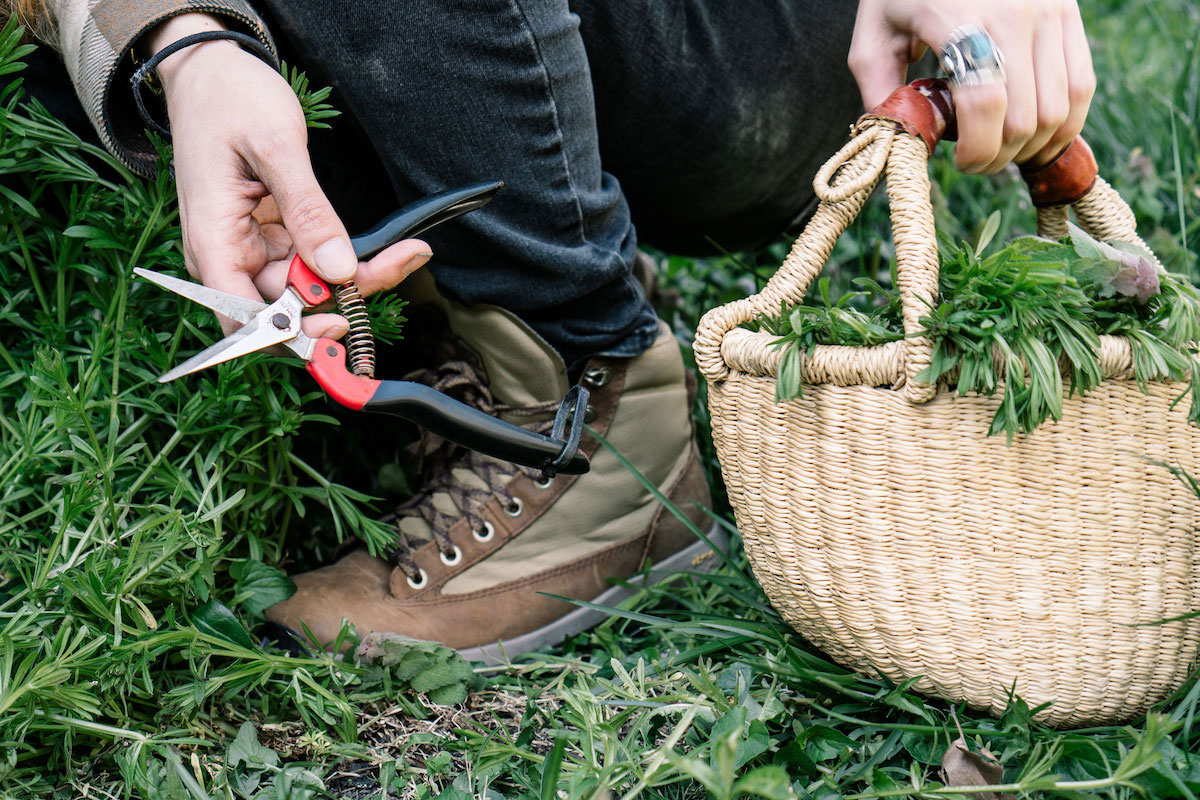 Having an interest in identifying and learning about a variety of edible wild plants allows you to engage with nature in authentic and intimate ways. When you start incorporating wild plant foods into your diet it will be the beginning of a wonderful relationship. Read more on here  Looking to connect? Coming up this month our members are holding events around the country. Head over to our website and check out what is being offered in your local area. If you are a member and have an event coming up that you would like to promote on the website, please get in touch by emailing Permaculture In New Zealand. |
